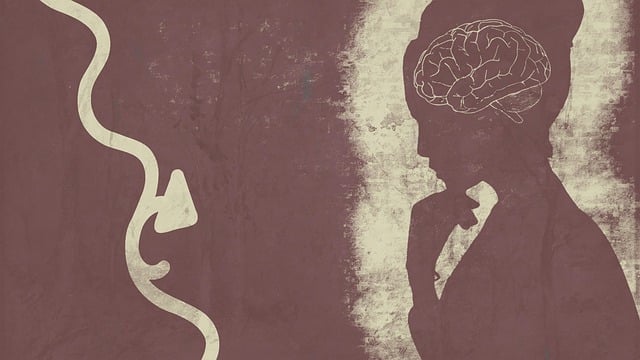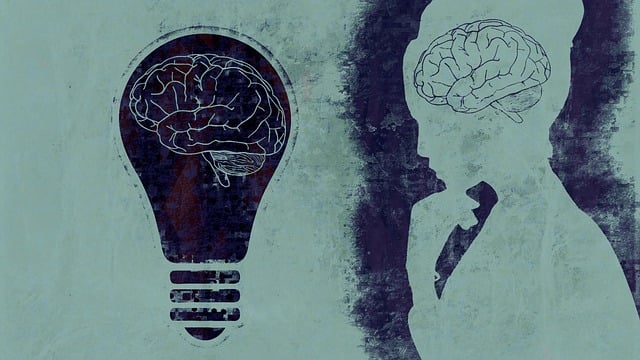Mental health professionals play a vital role in suicide prevention through recognizing and responding to crises, offering tailored therapy for adults focusing on anxiety relief and inner strength development. With cultural competency training, they create safe spaces, empower clients to explore underlying issues, and enhance self-esteem. A multi-faceted approach including awareness training, access to evidence-based therapy, and post-crisis care ensures long-term recovery for vulnerable adults, while community outreach programs foster supportive networks.
In times of crisis, effective intervention can be a lifeline. This comprehensive guide delves into crucial strategies for navigating mental health emergencies, focusing on suicide prevention techniques as a core element. From understanding the intricacies of crisis intervention to identifying at-risk individuals and the vital role of mental health professionals, this article equips readers with essential tools. We explore post-crisis care, fostering recovery, and providing hope. Discover practical approaches to therapy for adults in distress, emphasizing the importance of early intervention in saving lives.
- Understanding Crisis Intervention: A Lifeline in Times of Distress
- Identifying Signs: Recognizing When Someone Is At Risk
- The Role of Mental Health Professionals: Strategies for Support
- Suicide Prevention Techniques: A Comprehensive Approach
- Post-Crisis Care and Recovery: Nurturing Hope and Resilience
Understanding Crisis Intervention: A Lifeline in Times of Distress

In moments of crisis, whether it’s a personal trauma or a mental health emergency, effective intervention can be a lifeline for individuals struggling with distress. Crisis intervention strategies are tailored to provide immediate support and guidance during acute situations, focusing on stabilizing the individual and preventing further deterioration. This critical process involves skilled professionals who understand the nuances of human behavior during crises and have the tools to de-escalate potentially dangerous situations.
For adults contemplating suicide, timely intervention can be life-saving. Therapy for adults suffering from suicidal ideation requires a comprehensive approach that includes risk assessment, empathetic communication strategies, and burnout prevention techniques for mental health professionals. A thorough risk assessment helps identify potential hazards while effective communication strategies foster a safe and supportive environment. By implementing these interventions, healthcare providers not only assist individuals in crisis but also contribute to their long-term recovery and improved mental well-being.
Identifying Signs: Recognizing When Someone Is At Risk

Recognizing when someone is at risk of a crisis, such as suicidal ideation or severe emotional distress, is crucial for effective intervention. The signs and symptoms can be subtle but are often indicative of deeper struggles. Individuals experiencing a mental health crisis may display persistent feelings of despair, hopelessness, or overwhelming anxiety. They might also exhibit changes in behavior, such as withdrawing from social interactions, engaging in risky behaviors, or displaying extreme mood swings.
One key aspect to consider is the presence of suicidal thoughts or plans. This includes direct statements about wanting to die or express a desire to end their life. However, it’s essential to remember that not all at-risk individuals will verbalize these feelings openly. Healthcare providers play a vital role in recognizing these signs, especially through comprehensive training in cultural competency, enabling them to provide the necessary therapy for adults and anxiety relief while fostering inner strength development.
The Role of Mental Health Professionals: Strategies for Support

Mental health professionals play a pivotal role in crisis intervention, offering specialized support and guidance during times of extreme distress. They are equipped with evidence-based techniques tailored to help individuals navigate and overcome crises, focusing on both the immediate and long-term goals for emotional well-being promotion. Through active listening, empathy, and trauma-informed care, these professionals create safe spaces where clients feel understood and empowered.
One of the key strategies employed by mental health experts is therapy for adults, which can be life-saving in preventing suicide. By fostering open communication, they assist individuals in exploring underlying issues, developing coping mechanisms, and enhancing self-esteem—crucial elements in improving overall mental resilience. Additionally, healthcare provider cultural competency training ensures that support is delivered sensitively and effectively, catering to the unique needs of diverse populations. This holistic approach not only addresses the crisis at hand but also paves the way for sustained recovery and personal growth.
Suicide Prevention Techniques: A Comprehensive Approach

Suicide prevention requires a comprehensive approach that combines various therapy techniques for adults at risk. One effective strategy involves training individuals in mental health awareness and emotional well-being promotion techniques, enabling them to recognize early warning signs and offer crucial support. This proactive mindset not only helps in burnout prevention but also fosters a culture of care within communities.
Professionals can play a vital role by providing access to therapy for adults exhibiting suicidal ideation. Through structured interventions, counselors guide individuals through crisis situations, helping them navigate their emotions and develop coping strategies. By integrating these evidence-based practices, we can create a safety net that catches those vulnerable to suicide, offering them the support they need to heal and recover.
Post-Crisis Care and Recovery: Nurturing Hope and Resilience

After an individual experiences a crisis or traumatic event, such as contemplating suicide, providing sustained support and care is vital for their long-term recovery. Post-crisis care goes beyond immediate intervention; it involves a holistic approach to help individuals rebuild their lives and cultivate resilience. This includes offering ongoing therapy for adults who have considered or attempted suicide, focusing on trauma healing and coping mechanisms.
Community outreach programs play a significant role in fostering hope and recovery. By implementing these initiatives, support networks can be established, encouraging affected individuals to seek help and promoting self-esteem improvement. Additionally, risk management planning for mental health professionals is essential to ensure they have the necessary tools to handle such sensitive cases effectively while prioritizing their well-being.
Crisis intervention plays a pivotal role in supporting individuals during times of acute distress. By understanding the signs, recognizing when someone is at risk, and employing evidence-based strategies such as those detailed in this article – including the crucial roles of mental health professionals and suicide prevention techniques – we can provide effective guidance and foster recovery. Therapy for adults suffering from crises is not just a service; it’s a lifeline that empowers resilience and promotes hope.










